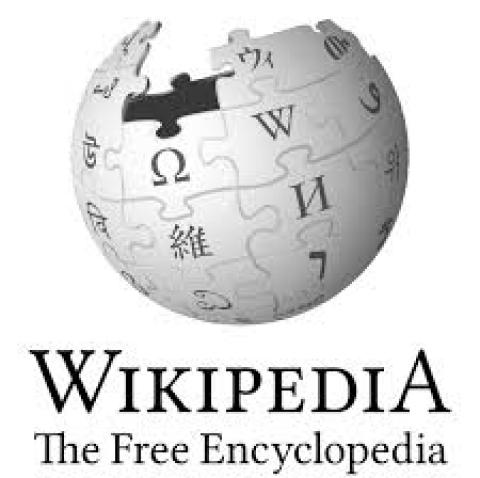For all its flaws, Wikipedia is an amazing resource. Despite the vandalism, edit wars, and arguments over what constitutes a point of view, it provides key information about a dizzying variety of topics. I've relied on them for a lot of information. Most entries have the basics—who, what, when, where, and why—and a long list of references if going beyond the basics is required.
Most entries, but not all. Disturbingly, all of the worst entries I have ever read have been in the sciences. Wander off the big ideas in the sciences, and you're likely to run into entries that are excessively technical and provide almost no context, making them effectively incomprehensible.
This failure is a minor problem for Wikipedia, as most of the entries people rely on are fine. But I'd argue that it's a significant problem for science. The problematic entries reinforce the popular impression that science is impossible to understand and isn't for most people—they make science seem elitist. And that's an impression that we as a society really can't afford.
What's an encyclopedia for?
I've looked up several definitions of encyclopedia (including Wikipedia's own), but they're not especially useful: it's something that contains information on a diverse range of topics and is arranged alphabetically. The lack of utility comes from the fact that the definition has to encompass everything from general-purpose encyclopedias to narrowly focused ones like the Encyclopedia of Analytical Chemistry.
But Wikipedia clearly aims at being a general-purpose Encyclopedia, which means it should be providing information for a general reader. That, to me, should include the basics: enough context to understand why a subject is in there in the first place, along with information about the entry that could be understood by a reasonably informed reader.
I came across a great example of that earlier this year after driving to the University of Virginia to teach a workshop. On the way, I passed historical markers for the Battle of the Wilderness, so I looked it up. And the entry is excellent. It has easily accessible key facts and figures, provides a strong introduction, and then many detailed sections. More importantly, the "Background" and "Aftermath" sections provide a clear perspective on how the battle fits into the larger picture of the Civil War.
I thought of that entry when I did a recent story on quantum memory and had to look up something called Rabi oscillations. The introductory paragraphs aren't terrible, though they annoyingly switch back and forth between "two-state" and "two-level" to describe the system.
But the entry starts to slip up toward the end, which wraps up by saying, "The effect can be modeled using the Jaynes-Cummings model and the Bloch vector formalism," and from there on out, it descends into a mass of incomprehensible equations, sporadically interspersed with impenetrable jargon.
This is hardly the only entry like this. The one for a Reproducing kernel Hilbert space assumes you already know what a reproducing kernel is (it doesn't even bother to link to a definition). And it unhelpfully indicates that "For ease of understanding, we provide the framework for real-valued Hilbert spaces," before launching into a section that's impossible to understand for anyone who isn't already deeply immersed in math. And it's not all physics and math; the entry for the Ka/s ratio, a useful measure in evolutionary biology, assumes you already know a lot about evolutionary biology and the genetic code.
One problem with all of these is that they're structured in a way that requires you to already have advanced knowledge of a topic in order to understand nearly anything on the page. In other words, they're probably only useful for people who would never have to read them anyway.
Another problem is that they're badly off compared to Wikipedia's own guidelines. The page on technical subjects has advice like "Put the most understandable parts of the article up front," "Explain formulae in English," and "Avoid overly technical language." That's all great advice, and all of it is completely ignored by these examples and many other pages.
(Technically, I guess the "most understandable" parts are up front, but considering that they're barely comprehensible, I'm not sure that this meets the spirit of the guidelines.)
This is not to say that there's no place in Wikipedia for material designed for experts. But it should be secondary to material that allows a person who's not an expert to get the basic gist of what the topic is about and why it's significant. The advanced material could easily be placed into a separate labeled section.
Intimidation factor
We have a science literacy problem in the US. It has stalled action on climate change, allowed the resurgence of communicable diseases, and turned basic biology into a political football. Training more scientific experts—the sorts of people who can understand the Wikipedia entries mentioned above—won't solve this. But one potential partial solution is to have more of the population feel that scientific knowledge is approachable, and scientific reasoning is intuitive.
Entries such as these send the exact opposite message. They suggest that quantum mechanics is completely impenetrable. That evolutionary biology is just a bunch of jargon. That math involves little more than a bunch of random stipulations. More generally, they indicate that it's something that has to be left to the experts and is inaccessible to anyone without arcane knowledge.
It's elitist in the worst possible way. And, at a time when many scientists bemoan the public's lack of interest and support, entries like this can potentially worsen the situation.


Spread the word